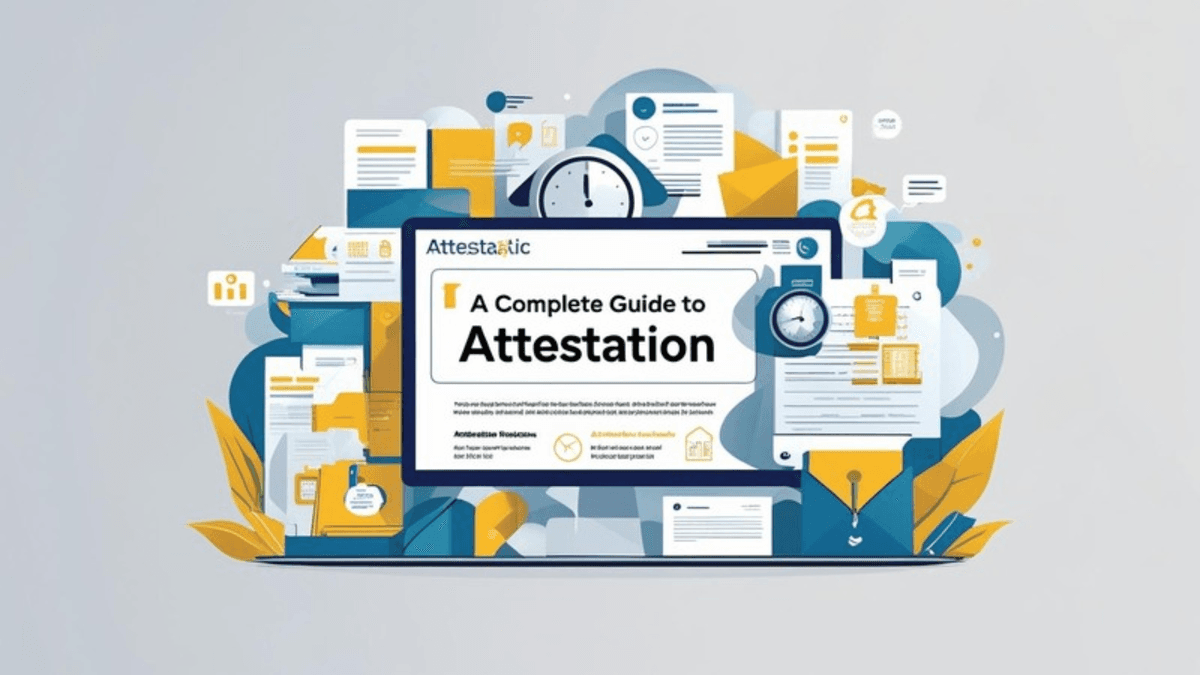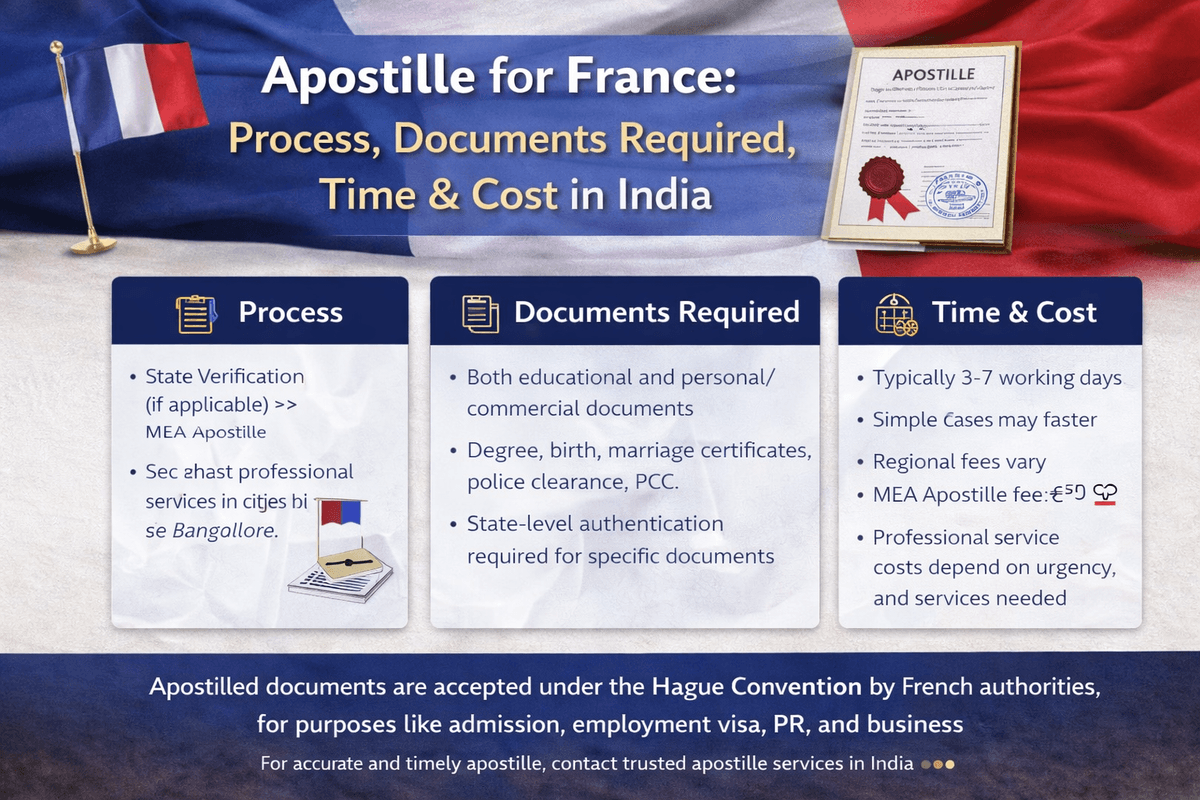
A Complete Guide to Attestation and Its Process
Attestation is an essential process that authenticates documents to ensure their legitimacy for use in foreign countries. Whether you're pursuing higher education, employment abroad, or planning to migrate, attestation becomes a critical requirement. This article offers a complete guide to attestation and its process, with a specific focus on attestation services in India, including embassy attestation in India.
Attestation in India refers to the verification and validation of documents by designated government authorities to certify their authenticity. This process is vital when an individual intends to use documents such as educational certificates, birth or marriage certificates, commercial documents, or power of attorney abroad. The main objective of attestation is to eliminate fraud and ensure that the presented documents are genuine.
In India, attestation involves several layers of authentication. It usually starts at the state level and moves up to central government authorities before final verification by the respective embassy or consulate of the destination country. The types of documents that typically require attestation include personal documents (birth, marriage, death certificates), educational documents (degrees, diplomas, transcripts), and commercial documents (invoices, incorporation certificates).
The attestation process in India generally follows a systematic flow. The first step is Notary Attestation, where a notary public verifies the authenticity of the document. This is often the preliminary step before moving on to higher authorities.
Next is Home Department or Human Resource Development (HRD) Department Attestation. For personal documents, the Home Department of the respective state validates the documents. In the case of educational documents, the HRD of the concerned state or central government performs the verification. This level of attestation ensures that the documents originate from recognized institutions or authorities.
After state-level attestation, the documents are submitted to the Ministry of External Affairs (MEA) for further authentication. MEA attestation is mandatory for all documents that need to be used abroad. MEA attestation in India includes stamping or attaching a sticker that verifies the legitimacy of the documents.
The final step is Embassy Attestation in India. The embassy or consulate of the destination country located in India authenticates the documents. Each embassy may have different requirements, processing times, and fees, depending on the nature of the documents and the destination country.
For countries that are a part of the Hague Convention, the process may involve Apostille rather than embassy attestation. An apostille is a simplified certification accepted by 100+ countries, and it is issued by the MEA. It eliminates the need for embassy attestation.
Individuals seeking attestation services often opt for professional agencies to manage the process efficiently. These attestation services in India help in document collection, verification, submission, tracking, and final delivery. They ensure that all legal formalities are fulfilled, reducing the risk of delays or rejections.
The cost of attestation in India varies depending on several factors, including the type of document, the destination country, the urgency of processing, and whether the service includes pick-up and delivery. For instance, MEA attestation fees are generally minimal (ranging from INR 50 to INR 100 per document), but embassy attestation can cost significantly more, sometimes ranging between INR 2,000 to INR 10,000 per document depending on the country. Additional service fees from attestation agencies also apply.
The time frame for attestation in India also varies. Notary and state-level attestations can take 3 to 7 working days. MEA attestation usually requires 1 to 2 working days. Embassy attestation can take 4 to 10 working days, depending on the specific requirements and document type.
Embassy attestation in India is crucial for documents intended for use in countries such as the UAE, Saudi Arabia, Qatar, Kuwait, Oman, and many others. These countries require both MEA and embassy attestations to process visas, work permits, and other legal formalities. For educational certificates, especially, embassy attestation serves as proof that the degree is recognized and legitimate.
Many professionals, especially healthcare workers, engineers, and IT professionals, rely on proper attestation to secure employment overseas. Likewise, students aiming to pursue higher education abroad must present attested educational credentials. Families relocating abroad also need attested birth, marriage, and other civil certificates for visa and immigration purposes.
Commercial documents like power of attorney, board resolutions, and business agreements also require attestation for international trade, company registration, or legal compliance. Businesses regularly use attestation services in India to authenticate documents for foreign collaborations, tenders, and partnerships.
Choosing the right agency for attestation in India is essential. Reputable agencies are usually MEA-authorized and may also hold ISO certification, ensuring a standard level of service and transparency. They provide real-time tracking, customer support, and doorstep document collection and delivery.
When selecting an attestation service provider, ensure they have:
Experience with the specific country’s requirements
Clear pricing structure
Good reviews and reputation
Government authorization
To summarize, attestation in India is a multi-step verification process that plays a critical role in authenticating documents for use abroad. The process involves notary attestation, state-level validation, MEA authentication, and embassy attestation. Whether you're a student, professional, business owner, or family member planning to move abroad, understanding and fulfilling the attestation requirements is non-negotiable.
By choosing professional attestation services in India, individuals can save time, avoid errors, and ensure that their documents are legally recognized by foreign authorities. Embassy attestation in India remains one of the most crucial steps in this process, especially for countries outside the Hague Apostille Convention.
As global mobility continues to rise, the importance of attestation in India will only grow. Whether it’s for personal, educational, or commercial reasons, ensuring your documents are correctly attested is the first step toward a seamless international experience.
- All
- Apostille
- Attestation
- Australia Apostille
- Austria Apostille
- Bahrain Attestation
- China Attestation
- Egypt Attestation
- France Apostille
- Germany Apostille
- HRD
- Italy Apostille
- Kuwait Attestation
- Lithuania Apostille
- MEA
- Malaysia Attestation
- Mexico Apostille
- Netherlands Apostille
- Nigeria Attestation
- Oman Apostille
- PCC
- Philippines Attestation
- Qatar Attestation
- Saudi Arabia Attestation
- Taiwan Attestation
- Translation
- UAE Attestation
- UK Apostille
- USA Apostille
- Vietnam Attestation
- Visa Stamping




